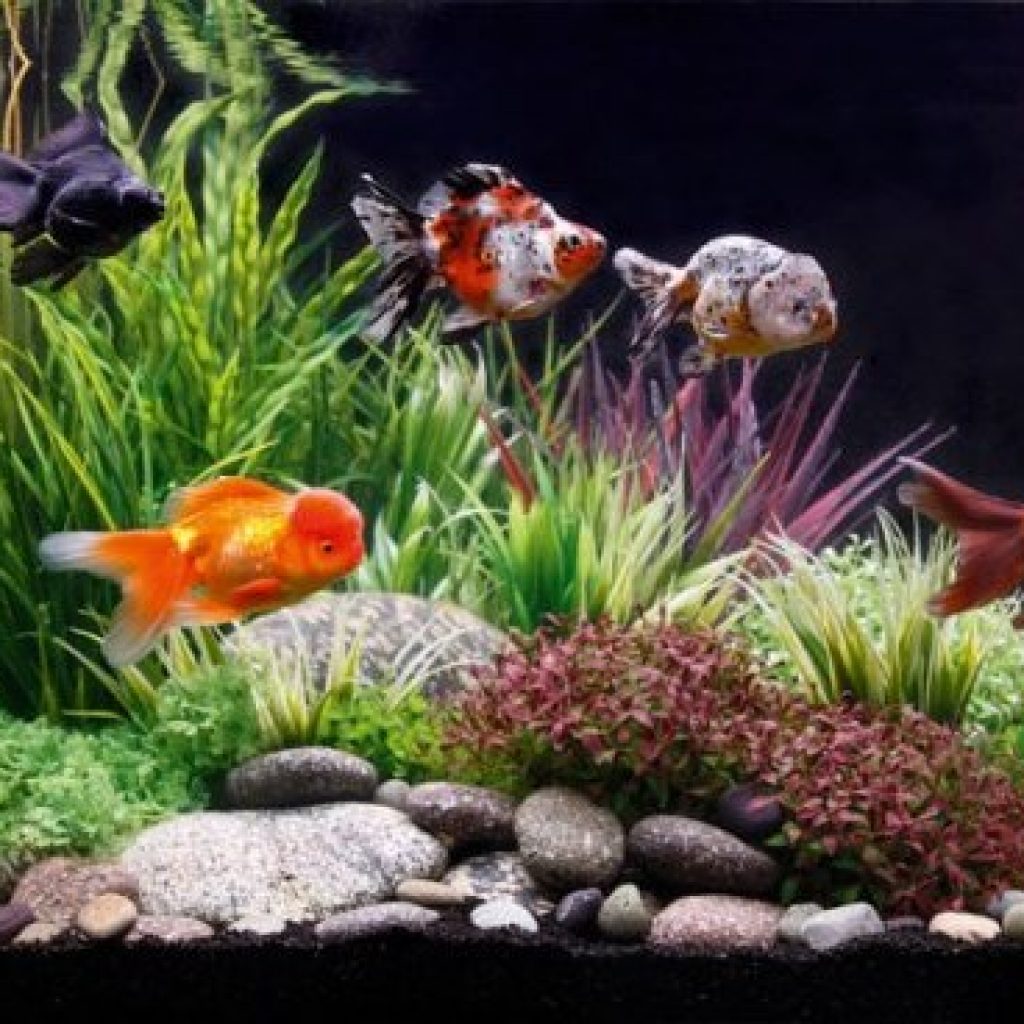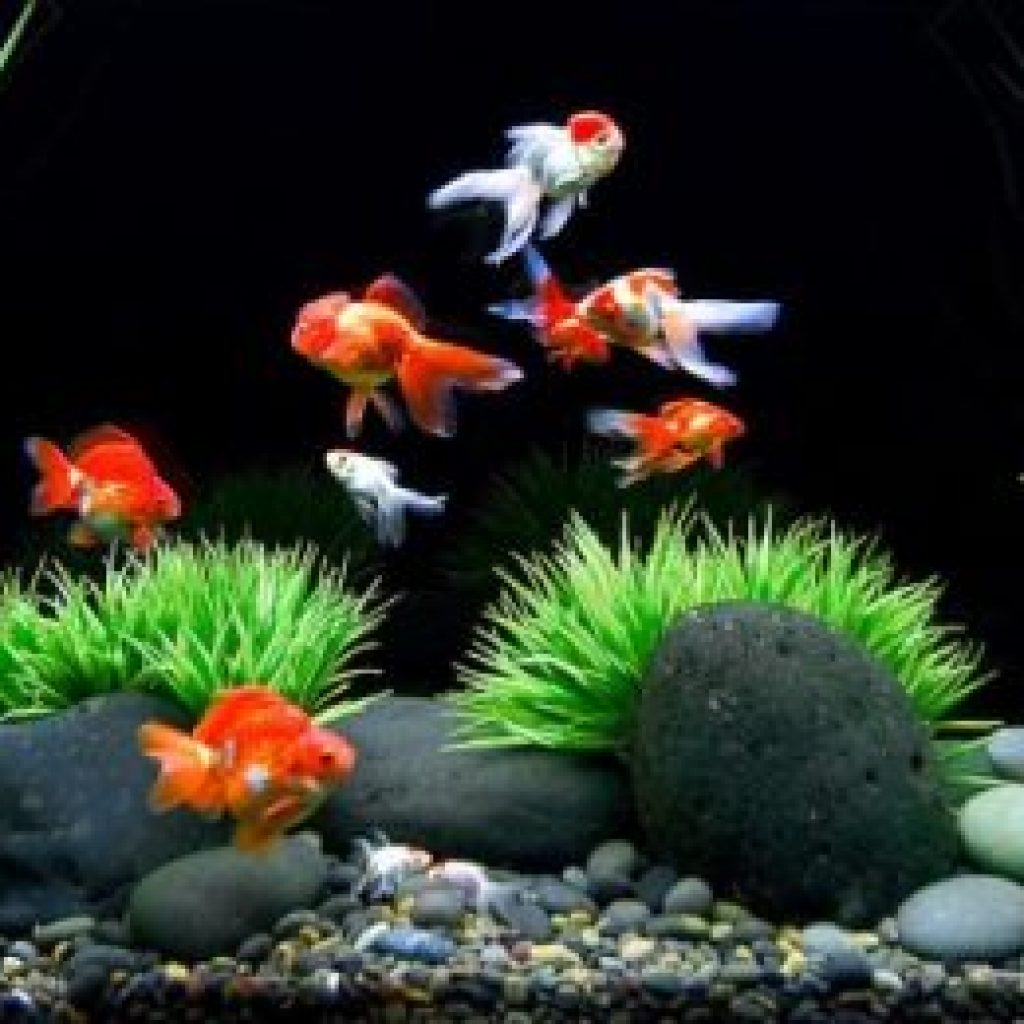As children, all of us, at some point in our lives, must have wondered if fishes and animals too, sleep just like us.
If you have an aquarium with goldfishes in it, it wouldn’t be very unusual on your part to ponder upon whether or not these gilt and shiny creatures at all snooze off during the entire day.
See Also:
Do goldfish sleep?
The only straightforward answer to this question would be yes; goldfishes do sleep. However, their sleeping pattern, unlike that of humans does not include long hours of nap.
Their sleep is more like periodic resting. The fact that goldfishes do not have eyelids elucidates why they cannot literally close their eyes while falling asleep.
How do goldfish sleep?
If you are trying to figure out if a goldfish is sleeping inside the tank, do not expect it to exhibit clear signs like lying down on the bed of the aquarium or something similar.
The only indicator that will imply that the goldfish is sleeping is when they become less active. They will stay put in one place and try to move slowly to maintain stability.
Another thing that you will notice is that the fish will hover in the tank, a bit low in the water, with its head pointed downwards towards.
How to tell when your goldfish is sleeping?
Apart from the aforementioned signs, there are a few other insignias from which you can affirm that the goldfish is sleeping. Nevertheless, remember that a lot of these precursors are similar to the ones that they display when sick thus, most importantly, you should be able to differentiate them appropriately.
When resting, the golden hue on the fishes’ bodies can seem to fade away hence, making way for a paler tinge but, there’s nothing to worry as this is their natural tendency.
Like we have said, goldfishes do not close their eyes when sleeping which also in a way infers that they are most alert when indulging in some siesta. Even if they get a clue of the slightest movement around the tank or you happen to switch on the lights for a while when they are resting, it can astound them and invite some undue stress.
Have in mind that the last thing that you would ever want to do to your pet is inducing unforeseen stress as it is capable of distorting its overall health by making room for unwarranted complications.
Goldfishes, like their human companions, prefer sleeping when the room is dark. Therefore, if you want to render your pet with some scope of rest then ensue that the lights of both the room and the aquarium are turned off. Even if you cannot curtail the brightness of the room, try to switch off the lights of the tank at least for 12 hours every day.
The verity that goldfishes are diurnal should be highlighted here; meaning, they are most energetic during the day. Although the night is not their fancied time to rest, because the lights go off during this period, the goldfishes have developed this prefigure.
How much sleep do goldfish need?

The amount of sleep that a goldfish would need largely depends on the fish itself. Some of them can resort to the afternoon as their best nap time thereby, staying awake for the rest of the day while others like prolonged and undisturbed hours of sleep at night.
As a goldfish owner, under all circumstances, you must be familiar with the reality that in order to get optimal sleep and resultantly, remain healthy, they should be subjected to regular day and light cycles so that their system knows when to rest and when to remain active.
Moreover, don’t get confused when your fish is yawning because that doesn’t have to necessarily mean that it is tired; instead, it can just be that the creature is trying to clean its gills with water.
There is a string of vulnerabilities that the goldfishes can be exposed to health-wise as a repercussion of not getting enough sleep.
This includes abnormality in otherwise consistent body functions, deterioration of the immune system and slowing down metabolism which, in turn, makes way for bloating and constipation.
What lights to use for a goldfish tank?

The decision circumscribing the appropriate lights that you should get for the goldfish tank is largely influenced by another factor, and that is if there are live plants thriving inside the aquarium.
- If no, you will have a wide array of different lights to choose from for your reservoir. Aquarists are of the opinion that LEDs and fluorescent lights work the best for unwanted, freshwater tanks. Also, you can have a bulb that emits bluish glare to emphasize the natural color of the water around the fishes to make them feel more at home that has been left far behind in the wild. As far as the options of fluorescent bulbs are concerned, fundamentally, there are two variants and they are VHO (Very High Output) and NO (Normal Output). Without any vegetation inside the aquarium, both of these will work just fine as long as they are furnishing the fishes with a fitting light cycle. If you are to rely on our judgment, we would suggest you obtain two or more lamps that can be fixed at each end of the chamber to keep the surroundings bright and colorful.
- If yes, then the recourse would again be fluorescent lights but, in this scenario, they will have to be of full-spectrum and you should procure multiple bulbs. If you own a standard-sized fish tank then the HO (High Output) bulbs would be more apt with their power spun to a minimum; whereas, for larger aquariums, VHO (Very High Output) bulbs are the ones that we would vouch for. Metal halide bulbs too are a worthy option but, you must know that they cost more than
Frequently Asked Questions
Can goldfish see in the darkness?
The vision of a goldfish is one of those highly-developed senses that can recognize everything that lies in their vicinity of 15 feet, even in the dark. Anything beyond this radar can be felt by the fish but, it will surely not be startled by it.
Principally, there are a total of four pigments in the fish’s eye that absorb different wavelengths of light. Several studies have affirmed that goldfish, quite like a lot of other fishes are extremely sensitive to polarized light as the light may sometimes reflect off their scales thus, simplifying the process of finding other fishes diffusing in the background.
Besides, polarized light also aids the fish in pinpointing human beings and preys that camouflage themselves in deep waters.
A goldfish’s sense of smell too is tremendously strong which is why it can sometimes feel if there is darkness around it.
Furthermore, there are still a lot of other sense organs in the dishes that perceive the vibrations in the water. For instance, their modified epithelial cells respond to the displacement of water caused by their movement in it.
Do goldfish sleep upside-down?
No, goldfishes do not sleep upside down inside the tank. A sleeping fish can be stationary but, always upright; it will neither bend sideways for support nor go completely upside down.
If you ever find your fish leaning or lying around the bottom of the aquarium, you should know that it is sick. Also, if the fish ever develops the swim bladder disease, its hollow bladder will keep it buoyant and the creature will be compelled to float sideways, upside down or have problems in swimming altogether.
Rather than leaving your fish to be on its own, you should get it treated by a veterinarian soon after you spot it balancing sideways.
Do goldfish sleep in the light?
If we are to abide by the rule then no, goldfishes do not sleep in light but, there can be a lot of exceptions. There are some species that like taking a power nap in the afternoon better than resting for the whole of the night. But, as opposed to this, in popular opinion, goldfishes sleep at night when the lights of the aquarium are completely turned on, much like humans.
Are goldfish nocturnal?
If you are an animal lover and have had pets before you will be aware of the truth that almost all of them are nocturnal; that is, they are wide awake during the night and sleepy during the day but, goldfishes cannot be classified under this category. They are largely qualified under the grouping of diurnal fish and justifiably so.
But, as we have said that one can never firmly affirm this theory and inescapably there are exclusions. An intriguing disclosure that we cannot help but, bring up here is that scientists have claimed if the goldfish are fed chiefly at night, they can have chances of swaying towards the nocturnal edge of the spectrum.

